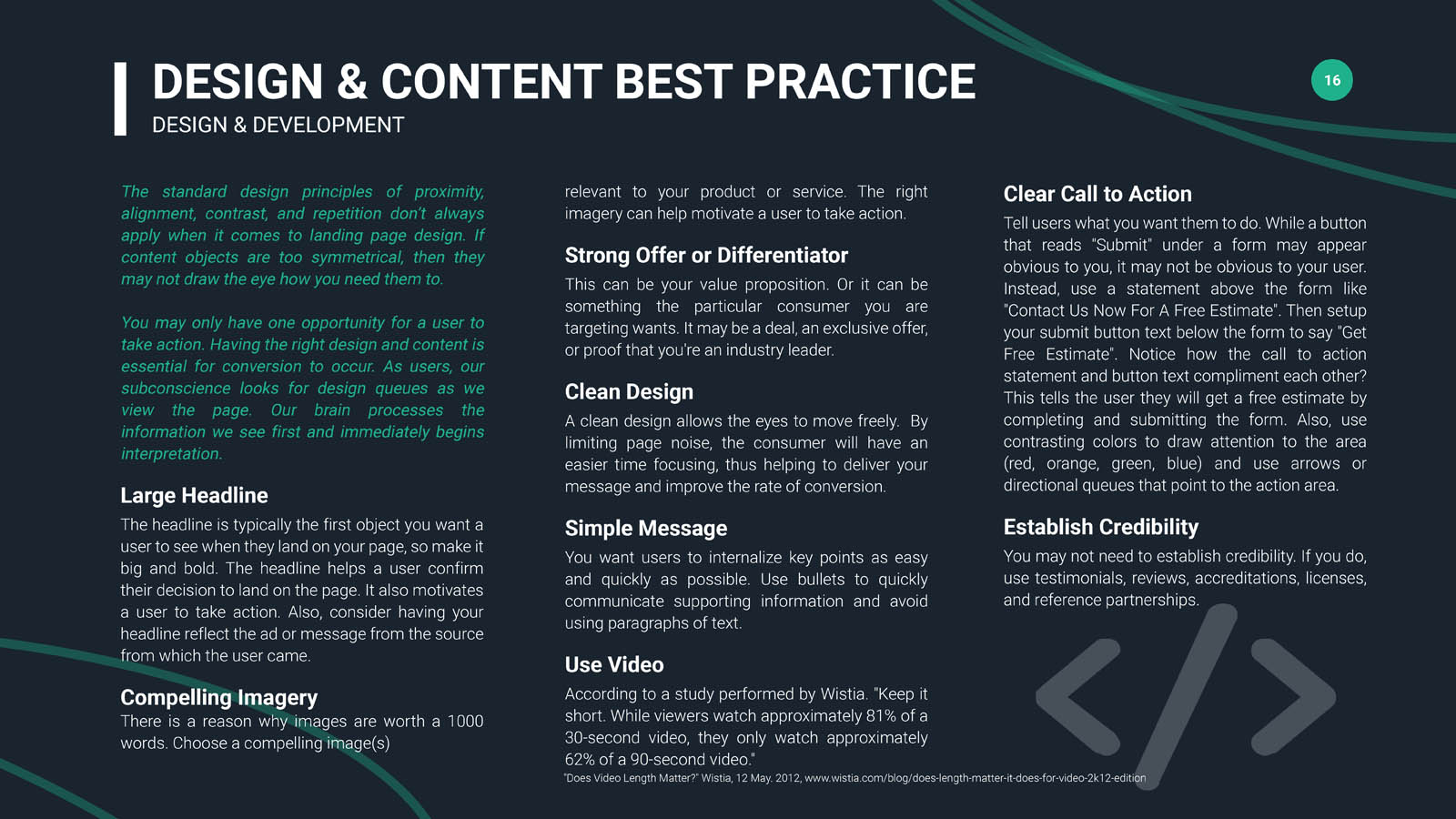
The standard design principles of proximity, alignment, contrast, and repetition don’t always apply when it comes to landing page design. If content objects are too symmetrical, then they may not draw the eye how you need them to. You may only have one opportunity for a user to take action. Having the right design and content is essential for conversion to occur. As users, our subconscience looks for design queues as we view the page. Our brain processes the information we see first and immediately begins interpretation.
The headline is typically the first object you want a user to see when they land on your page, so make it big and bold. The headline helps a user confirm their decision to land on the page. It also motivates a user to take action. Also, consider having your headline reflect the ad or message from the source from which the user came.
There is a reason why images are worth a 1000 words. Choose a compelling image(s) relevant to your product or service. The right imagery can help motivate a user to take action.
This can be your value proposition. Or it can be something the particular consumer you are targeting wants. It may be a deal, an exclusive offer, or proof that you’re an industry leader.
A clean design allows the eyes to move freely. By limiting page noise, the consumer will have an easier time focusing, thus helping to deliver your message and improve the rate of conversion.
You want users to internalize key points as easy and quickly as possible. Use bullets to quickly communicate supporting information and avoid using paragraphs of text.
According to a study performed by Wistia. “Keep it short. While viewers watch approximately 81% of a 30-second video, they only watch approximately 62% of a 90-second video.”
Tell users what you want them to do. While a button that reads “Submit” under a form may appear obvious to you, it may not be obvious to your user. Instead, use a statement above the form like “Contact Us Now For A Free Estimate”. Then setup your submit button text below the form to say “Get Free Estimate”. Notice how the call to action statement and button text compliment each other? This tells the user they will get a free estimate by completing and submitting the form. Also, use contrasting colors to draw attention to the area (red, orange, green, blue) and use arrows or directional queues that point to the action area.
You may not need to establish credibility. If you do, use testimonials, reviews, accreditations, licenses, and reference partnerships.